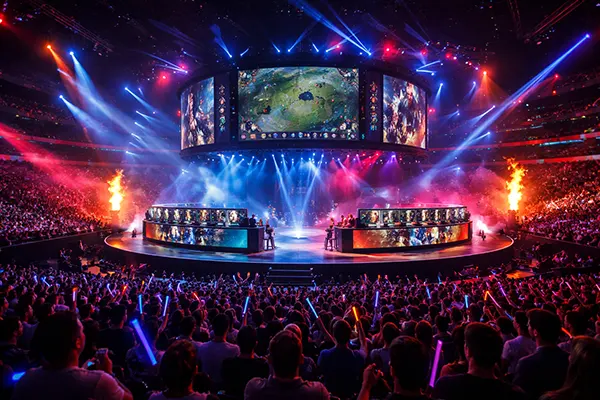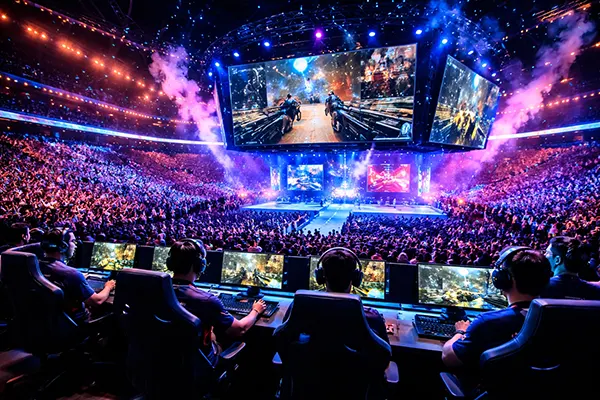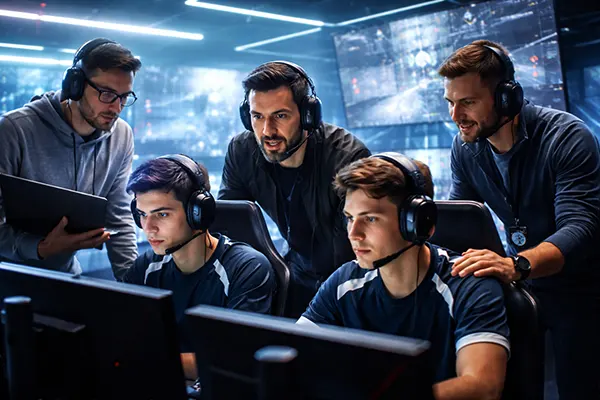Unexpected Esports Favourites of 2025: The First-Half Shockers
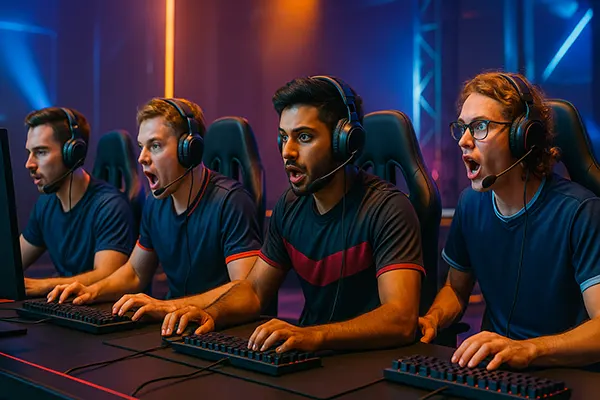
In the ever-evolving world of esports, predictions often fall apart in the face of raw performance and unforeseen breakthroughs. The first half of 2025 brought several surprises, as underdog teams rose to dominate tournaments across CS2, Valorant, and Dota 2. Let’s take a detailed look at which teams disrupted the scene and why.
Breakthrough Teams in Counter-Strike 2
2025 began with unexpected performances in CS2. One of the most talked-about teams is “Nexus Strike”, a Romanian roster initially valued at odds as high as 20.00 for top placements in Tier-1 events. By June, they reached the semifinals of IEM Cologne, defeating multiple top 10 teams.
The rise of Nexus Strike is attributed to strategic coaching. After hiring Swedish tactician Lars “Frost” Nilsson, their mid-round coordination saw noticeable improvement. In-game leader KappaN refined the team’s CT-side playbook, exploiting gaps in economy management across opponents.
Meanwhile, North American team “Altitude” secured a Major playoff spot for the first time since 2022. With starting odds of 15.50 to make it past Challengers, their run in Paris shocked analysts. Altitude’s entry fragger, Jetto, currently holds a 1.22 HLTV rating, placing him in the global top 15.
Why These CS2 Teams Surged
The transformations are tied to backroom changes and new talent integrations. Nexus Strike recruited under-the-radar rifler “Ralden” from Nordic FFA leagues, whose mechanical consistency added backbone to late rounds. Their analyst team also adopted machine learning for anti-stratting Tier-1 playstyles.
Altitude benefited from a simplified structure. The departure of their veteran IGL led to a more fluid and aggressive approach. Their coaching staff began using demo-based reinforcement learning to refine default paths based on each opponent’s tendencies.
In both cases, the combination of fresh blood, analytical support, and coaching overhaul were central to overturning expectations. Bookmakers’ odds simply didn’t account for off-season depth-building behind the scenes.
Valorant Squads That Defied the Rankings
In Valorant, Pacific and South American regions delivered upsets throughout the VCT 2025 circuit. Indonesian team “Garuda Blue” soared from Group Stage eliminations in 2024 to becoming Masters Tokyo finalists in May 2025. Their opening odds: 33.00 to reach top 4.
Garuda Blue revamped their strategic identity in early January, signing ex-DRX coach “Komae” and shifting to a more cerebral, map-control-heavy system. Duelist “Remz” became a revelation, averaging a 1.35 ACS across international events — a leap from his 2024 average of 0.98.
On the other side of the globe, “Crater Esports” from Brazil punched above their weight in the LATAM Challenger Series. Starting the season unseeded, they now sit third in the circuit rankings and clinched a spot in Champions 2025. Betting markets had them at 40.00 to qualify pre-season.
The Ingredients Behind Valorant’s Surprise Stories
Garuda Blue’s turnaround is largely tactical. By investing in mid-round calling and map-based discipline, they neutralised explosive Western teams. Their use of double initiator setups and delayed executes made them unpredictable.
Crater Esports leaned into player development. Their coach launched a 10-week bootcamp with sports psychologists and peak performance consultants. The aim wasn’t just strategy, but resilience — particularly visible in comeback wins throughout April.
Both teams capitalised on regions overlooked in early betting forecasts. Their success is a testament to long-term investment and the fading dominance of traditional powerhouses like Sentinels and Fnatic.
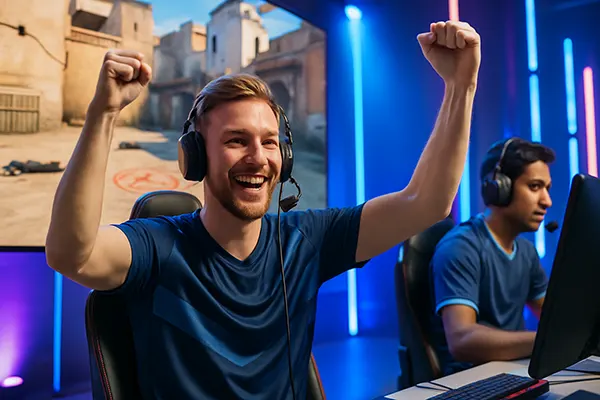
Dota 2: The Rebirth of Underdogs
In Dota 2, two teams emerged as first-half sensations. “Spirit Rising”, a CIS division offshoot from Team Spirit’s academy, stunned viewers by winning ESL One Kuala Lumpur. They entered the event with odds of 25.00 and no prior Tier-1 LAN appearances.
Similarly, “Echo Dynasty” — a Southeast Asian stack formed by former pub stars — made their mark by reaching the Riyadh Masters upper bracket. Their rise followed an experimental draft style, frequently employing unused heroes like Broodmother and Warlock in core roles.
Despite lacking organisational support, Echo Dynasty maintained a 70% win rate across four online qualifiers and developed a cult following. Their offlaner, “Yumeko”, became known for creative itemisation and clutch high-ground defences.
How Dota 2 Outsiders Made It Big
Spirit Rising’s edge lay in preparation. Their team spent six weeks in Belgrade, scrimming top-tier teams daily. Coach Boba implemented a live-notes system with instant tactical feedback during breaks — rare for Tier-2 setups.
Echo Dynasty, on the other hand, embraced chaotic drafting. They avoided meta picks, forcing top teams into discomfort. Their coach was also formerly a data scientist, who mapped hero synergy versus common tournament drafts.
Crucially, Dota’s shifting meta in early 2025 — with heavy emphasis on tower pressure and group brawls — worked in favour of teams willing to experiment. Bookmakers failed to factor in these dynamics, underscoring how form and ingenuity can overturn reputations.

